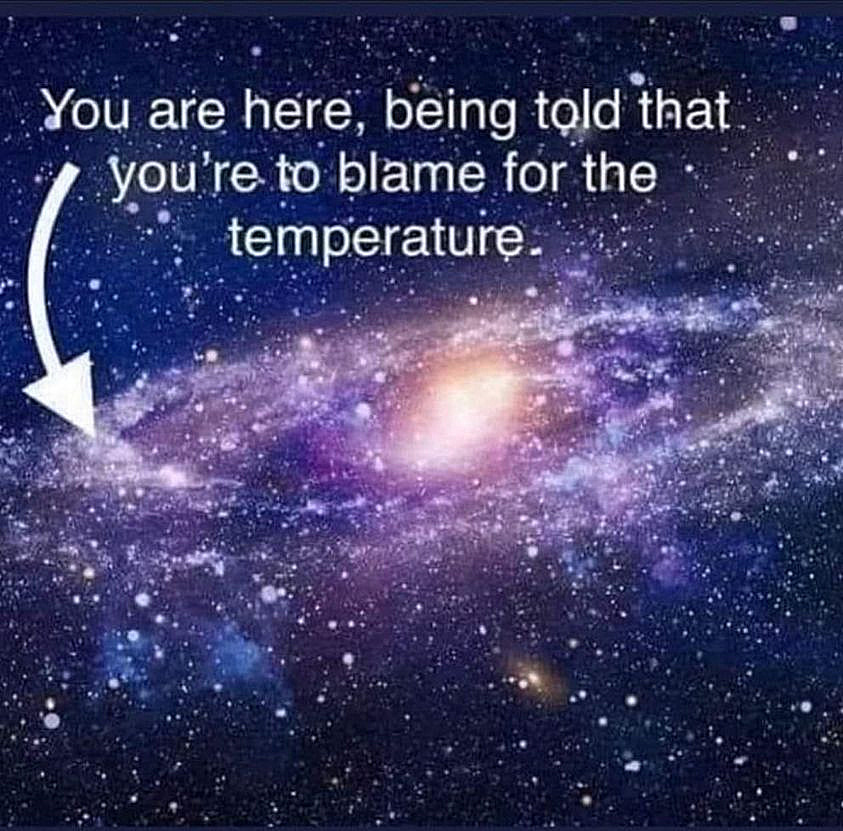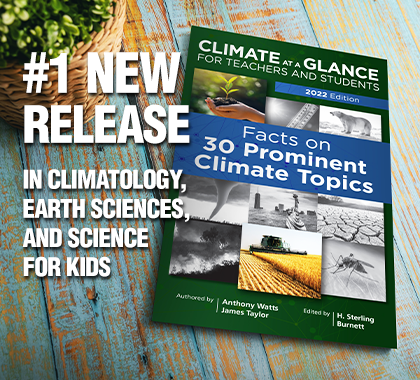YOU SHOULD SUBSCRIBE TO CLIMATE CHANGE WEEKLY.
Editor’s Note: Because of the way the holidays fall on the calendar, this will be the last Climate Change Weekly of 2022. With this in mind, rather than writing my traditional lead essay and two or three summaries, I decided to devote this entire issue to summaries of news stories, journal articles, and reports that caught my eye that I did not wish to hold off reporting on until next year. Enjoy!
I wish each and every one of you a Blessed Christmas and a joyous New Year!
– Sterling Burnett, Ph.D.
IN THIS ISSUE:
- Vanguard Abandons Net Zero Alliance
- Podcast of the Week: CO2 Is Not a Pollutant: The Benefits of Rising CO2 (Guest: Will Happer)
- Green Energy Components Are Like Blood Diamonds
- Wrangel Island Reindeer Killed by Ice
- Britain Is Burning Coal Again, to Avoid Power Outages
- 2022’s Extreme Weather Not Unusual in The United States
- Video of the Week: The Futility of Electric Vehicles
- BONUS Video of the Week: Climate Lie #1
- Climate Comedy
- Recommended Sites
Vanguard Abandons Net Zero Alliance

Vanguard Group Inc., an American investment advisor with approximately $7 trillion in global assets under management, announced it has withdrawn from the Net Zero Asset Managers (NZAM) initiative, “the main financial alliance on tackling climate change.”
Facing mounting pressure from Republican U.S. politicians over the company’s use of environmental, social, and governance (ESG) factors in picking and managing securities, plus evident investor confusion over Vanguard’s guiding investment philosophy and goals, Vanguard stated,
We have decided to withdraw from NZAM so that we can provide the clarity our investors desire about the role of index funds and about how we think about material risks, including climate-related risks—and to make clear that Vanguard speaks independently on matters of importance to our investors.
States were asking the federal government to look into Vanguard’s activities, NewsBusters reports:
[I]n November, 13 Republican attorneys general “filed a rare motion” asking the Federal Energy Regulatory Commission (FERC) “to prevent” Vanguard from purchasing shares of publicly listed utility companies due to its particular obsession with environmental, social, and governance (ESG) investing. NZAM members [have] reportedly committed to “achieving net zero carbon emissions by 2050.”
Bloomberg speculated Vanguard’s size and influence in the investment industry will make its exit from NZAM a setback for the group’s attempt to force an end to the production and financing of fossil fuels. Vanguard insists its withdrawal “will not affect our commitment to helping our investors navigate the risks that climate change can pose to their long-term returns.”
Despite the prominence the mainstream media generally give to climate change and climate policy, NBC Nightly News, ABC World News Tonight, and CBS Evening News did not cover Vanguard’s decision on the day it was announced, in contrast with all the prominent the financial press outlets, NewsBusters notes.
SOURCE: NewsBusters; Reuters
Podcast of the Week
Will Happer, physicist at the CO2 coalition, joins host H. Sterling Burnett to discuss the misinformation permeating throughout our society regarding the benefits of rising CO2. Unlike climate alarmists who push hypothetical disaster scenarios built on faulty computer models, Happer references real-world data to highlight the benefits of rising CO2 concentrations.
Climate science is tragically politicized. For one, the tremendous benefits rising carbon dioxide concentrations (CO2) have on the earth is completely ignored. As CO2 levels increase, crop production follows suit in rich and poor nations alike. Alarmists have chosen to ignore this fact. They’d rather promote climate disaster stories built on computer models, not real-world data. Time and time again, the computer models have proven inadequate. Data on climate change indicates the world is becoming better for human civilization. The fact alarmists want to hide is this. CO2 is not a pollutant.
Subscribe to the Environment & Climate News podcast on Apple Podcasts, iHeart, Spotify or wherever you get your podcasts. And be sure to leave a positive review!
Get your Copy at Amazon TODAY!
Green Energy Components Are Like Blood Diamonds

In a recent Washington Times commentary, Rick Amato of Amato Wealth Management Group and a primetime national TV host at OAN, and Ronald Stein, an energy policy advisor for The Heartland Institute, say the materials needed to power the green energy transition wealthy elites in developed countries are demanding are the equivalent of blood diamonds: built on slave and child labor in developing countries, destroying the environment in the process of extraction. Amato and Stein write,
Today it is the green movement, which is dominated by poorer developing countries mining the exotic minerals and metals that support the wealthy countries that are going green at a great cost to humanity.
The wealthy countries understand that developing countries have virtually no environmental laws or labor laws, which allows those locations unlimited opportunities to exploit people with yellow, brown, and black skin and inflict environmental degradation on their landscapes.
Showing no moral or ethical concerns for the disposable workforce, wealthy countries continue to encourage subsidies to procure electric vehicles and build more wind and solar energy infrastructure.
Stein and coauthor Todd Royal examined this subject in detail in their 2021 Pulitzer Prize-nominated book Clean Energy Exploitations. They revealed the environmental devastation and human degradation the green energy revolution is built upon, and they discussed how proponents of and profiteers from the falsely labeled “green” energy transition are less than transparent about the immoral conditions their pet green energy policies create.
“In … developing countries, mining operations exploit child labor and are responsible for egregious human rights violations of vulnerable minority populations,” write Amato and Stein. “These operations are also directly destroying the planet through environmental degradation.”
Even President Joe Biden seemingly acknowledged green energy components are morally compromised as they are currently produced, declaring in November batteries from China depend on child labor and the U.S. Department of Labor (DOL) was adding lithium-ion batteries “to a list of goods made with materials known to be produced with child or forced labor under a 2006 human trafficking law.” The DOL also added polysilicon from China, a critical component of solar panels, to the list of materials produced using slave or forced labor.
Will the morally compromised nature of these minerals and rare earth elements critical to wind and solar power and electric vehicles affect the developed world’s push for green energy? Only time will tell, but so far the signs aren’t good and I doubt it.
SOURCE: Washington Times
Wrangel Island Reindeer Killed by Ice

Research published in the journal BioOne Complete finds brown bears have been located on Wrangel Island for the first time.
In the process of confirming the brown bear’s presence on the island, the researchers also examined the status of eight other mammal species, some long endemic and others introduced to the island in the twentieth century. Lemmings, arctic foxes, and polar bears have resided on the island for hundreds to thousands of years, whereas wolves, muskox, and reindeer did not exist on the island before they were introduced there by conservationists in the twentieth century, even though sea ice sometimes connects Wrangel Island to the mainland. Some breeding-age reindeer were introduced to the island in the 1950s, and their population grew.
Although climate alarmists regularly argue the warming Arctic endangers the species that currently thrive there, it seems unusually cold weather and repeated icing episodes between 2002 and 2007 caused reindeer numbers to plummet, from 8,500 to between 400 and 500 individuals, within five years. The thick, hard ice covered the tundra moss, lichen, and grasses caribou and reindeer rely upon for their diets. Unable to get through the ice to reach their food, reindeer starved by the thousands.
“After several winters with ice-crust formation and rain-on-snow events, the population of reindeer decreased from 8,500 in 2002 to 450-500 in 2007,” write the researchers in the BioOne Complete study.
Commenting on the sharp decline in reindeer numbers on Wrangel Island, the authors at No Trick Zone write,
Great die-offs are actually quite common on Wrangel Island and other nearby Arctic sites. But the mass deaths are not due to climate warming. The opposite, actually.
Winter in the Arctic is excruciatingly cold, and food is scarce due to excessive ice coverage. Nearly all deaths occur during these colder months. For example, the icing of the snowpack in the winter of 2003 led to 20,000 musk-oxen deaths on Banks Island [a 2019 study found].
Various strands of evidence suggest the Arctic was warmer several thousand years ago than at present, allowing grazing megafauna such as wooly mammoths to graze on grass there year-round. Mammoths survived on Wrangel Island thousands of years after they went extinct on the mainland. This changed approximately 3,700 years ago. Now, it appears, the Arctic environment is too hostile for even normally well-adapted species such as reindeer to flourish there.
SOURCES: No Tricks Zone; BioOne Complete
Heartland’s Must-read Climate Sites
Britain Is Burning Coal Again, to Avoid Power Outages
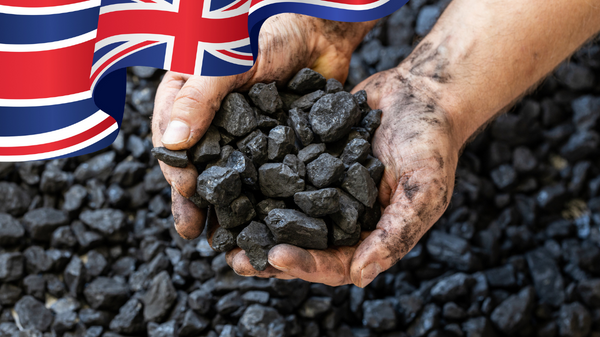
Britain’s National Grid company announced it is restarting two coal-fired reserve power plants as an energy crisis caused by an unusually cold winter and lack of wind to power the country’s North Sea offshore wind facilities threaten the country with blackouts.
“We’ve issued a notification to warm two winter contingency coal units,” National Grid said in a statement posted on social media. The company said the measure “should give the public confidence in Monday’s energy supply.”
Much of Britain’s fossil fuel-powered domestic generating capability has been shuttered over the past couple of decades, especially its coal-fueled power plants, as Conservative and Labour governments alike embraced the EU’s climate agenda. The governments have sharply curtailed the use of fossil fuel to generate electricity, replacing it with intermittent, expensive, renewables.
As has been true everywhere this agenda has been adopted, higher energy prices and periodic power shortfalls have become common in Britain.
“BBC Radio 4 and the Grid are to talk about using more old coal power stations as it is cold with little wind,” Sir John Redwood, a veteran Conservative MP who served in the governments of Sir John Major and the late Margaret Thatcher, told Breitbart. “Why were they not interested in this before when some of us warned them this could happen?”
“We should not be worrying about keeping the lights on, relying on imports,” Redwood said.
Despite the looming power shortfalls, environmental groups are protesting Prime Minister Rishi Sunak’s decision to approve Britain’s first new coal mine in decades. For the activists, the reality of U.K. residents having to shiver in the dark as their heat and power fail this winter is not as important as the theoretical consequences of the use of coal on climate change 100 years from now. Talk about misplaced priorities!
SOURCE: Breitbart
2022’s Extreme Weather Not Unusual in The United States
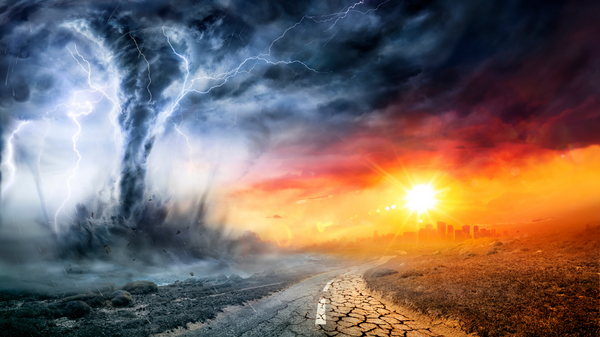
As 2022 draws to a close, Roger Pielke Jr., Ph.D. has done the world a service by summarizing the year’s extreme weather conditions before government bureaucrats start to hype climate alarm based on the misleading use of cherrypicked data. Pielke compares this year’s weather to the long-term trends for various types of extreme weather, writing,
[I]t is not too early to look back at how 2022 looks in a historical context.
I wanted to get this out before NOAA blasts out its “billion-dollar disaster” press kit, along with the implication that damage from disasters tells us something about extreme weather.
If you want to understand trends in extreme weather, look at weather data, not economic data.
In a few words, extreme weather in 2022 in the U.S. has been pretty normal. Some extreme weather phenomena occurred at a rate or intensity greater than historical averages, but many occurred less.
Pielke finds that in 2022,
-
- Maximum temperatures were slightly higher than the historical average but lower than those experienced in the 1930s.
- The severity and extent of drought were slightly above the average for the twenty-first century, but over the past 100 years drought has modestly declined in the continental United Sates. (See figure below.)
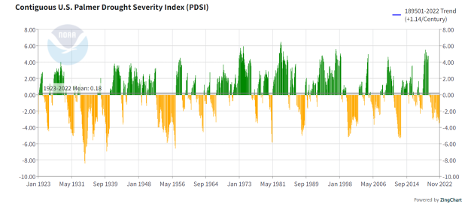 Source: NOAA
Source: NOAA
-
- The number and intensity of tropical cyclones were average to below-average in 2022. (See table below.)
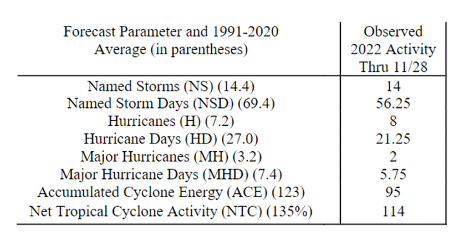
-
- The incidence of tornadoes was below the average of 2005-2021.
- Hail was below the average of 2005-2021, with each of the last 11 years being below that average.
- The incidence of strong winds was slightly higher than the average since 2005, though six of the last 10 years have experienced below-average winds.
- Fire was consistent with the post-2000 average.
- Although the full data is not yet available, the preliminary data suggest flooding and extreme precipitation in 2022 were consistent with the post-2000 average.
In short, 2022’s extreme weather rates were well within the norm for the twenty-first century and even for the past 100 years.
It is worth noting Pielke’s findings for 2022 are consistent with what the Intergovernmental Panel on Climate Change’s AR6 report concluded regarding extreme weather over the past century: no discernible climate change impact on extreme weather events, and no confidence that extreme weather trends can be attributed to human activities.
SOURCE: The Honest Broker
The Futility of Electric Vehicles
Advertisements for electric cars and trucks are EVERYWHERE now, but it seems that few people are looking at the real challenges of production, operation and ownership. A new study from Argonne National Laboratory in Chicago shows that the implementation of electric vehicles has had almost a negligible impact on the consumption of gasoline – amounting to about two days worth of gasoline consumption reduction in the last 10 years.
Essentially, electric vehicles have had negligible impact of the use of fossil fuels in transportation over the last decade. Meanwhile, there’s a massive push to meet a “Net Zero” goal by 2050 by implementation of wind and solar technologies in the hope they will power the future of transportation.
In this episode of Climate Change Roundtable, Sterling Burnett, Linnea Lueken, and host Anthony Watts discuss the futility of electric vehicles and the plan to power them in the future.
Tune in LIVE every Friday at noon CT on YouTube to catch the show and participate with other fans in the chat.
Climate Lie #1
Make plans NOW to join The Heartland Institute at the 15th edition of the most-important and informative conference on climate science and energy policy in the world. Held in Orlando, Florida – a location we picked to honor Florida’s status as a “free state” – this conference will once again bring together the world’s best experts to analyze the latest climate science and the wrong-headed energy and policy solutions the world’s governments are determined to impose on us all.
Climate Comedy
